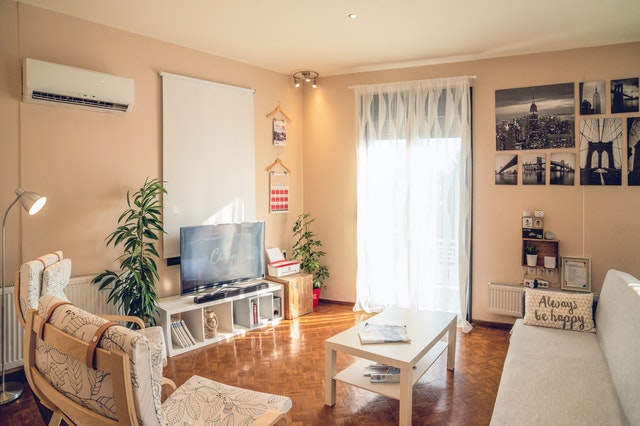Renting your first apartment is an exciting prospect, but it can also feel overwhelming once you begin to navigate the rental process. Finding a rental in your desired location can be challenging—and finding one that suits your budget is no less daunting! But if you stay informed and organized, you can manage the apartment hunting and rental agreement process with ease. Here, we’ve outlined everything you need to know before you sign a rental lease.
The First Things to Consider When Renting
When you begin to search for an apartment, you’ll want to consider a few essential first steps. Rental costs are going to be your primary concern. You’ll want to find an apartment that you can afford along with your other living expenses. Keep in mind that apartment rental costs vary widely, often from one neighborhood to the next. Once you establish your rental budget, consider location. If you opt for a rental close to your place of employment, you’re apt to save money on transportation costs, and that may affect your decision about where to rent.
Whether you’re planning to rent on your own or with roommates, consider the following steps carefully in order to make the best renting decision for yourself. Although an apartment rental is typically only associated with a six- to 12- month leasing agreement, that’s still a sizable time commitment—make sure you can adhere to that agreement.
Checklist for the Apartment Selection Process

Cost and location are primary factors that will govern your apartment search. Here, we’ll discuss these crucial factors in more detail:
Cost
Reflect on your budget when you consider rental costs. You’ll need to budget for other costs related to your rentals such as gas, electricity, internet service, phone service, and laundry. Sometimes, landlords include certain amenities like water in the cost of the rent. That benefit could inform your decision whether to rent one apartment over another. You should also find out about the security deposit requirements since they could impact your selection.
Size / Apartment Type
The more you search for a rental, the more likely you’re going to come across different property types and styles. Although luxury apartments tend to have more square footage, that’s not always the case, especially in high-demand locales like downtown city locations. You may want to confine your search to loft or studio apartments that may be much cheaper than apartments with two or three bedrooms.
Location
Location is often an important consideration for renters. Consider each potential rental’s proximity to your work, schools, parks, gyms, shopping centers, or other attractions and amenities that interest you.
Rental Management
Some renters prefer to deal with on-site property management rather than an off-site property owner. Before renting an apartment, get to know the landlord’s situation. Do some online research to find out about the rental’s previous tenants and their experiences associated with the landlord or leasing agents.
Lease Types
Are you looking for a month-to-month lease or a year lease? Sometimes you may even find landlords willing to enter into six-month leasing agreements. You’ll want to select an option that best suits your rental needs.
Amenities
As you consider different choices, remember to assess the amenities that come with your rental as these, too, could impact your decision. Some common amenities that renters look for include:
- On-site laundry facilities
- Parking space or garage
- Fitness center
- Swimming pool
Community Rules
A rental’s rules could be a deal-breaker for you, so be sure to get as much up-front information as possible about them before you sign a lease. A common one is no pets. This may be a no-go for you if you have a pet dog or cat. There may also be other rules associated with a rental or renting community that may dissuade you from renting.
Navigating Rental Paperwork
Once you narrow down your choice, you’ll need to submit a rental application. Typically, you can get these from the landlord or the property management website. You may even be able to download their form online. The rental application is not the lease, but rather a formal request for the property owner to rent to you. The forms are typically self-explanatory. You can expect to provide information such as:
- Name
- Current contact information
- Employment
- Income
- Social security number for credit and background checks
- Rental history
Although the rental application will make it feel like you’re the one being interviewed, the reality is that you need to ‘grill’ your prospective property managers, too. For instance, how attentive are they to maintenance problems? What’s considered a renter’s emergency requiring maintenance ASAP versus what isn’t? Does the landlord provide snow removal? Garbage pickup? Lawn service? A great apartment will be a lot less great under the oversight of a terrible landlord or property management company.
What Your Potential Landlord Isn’t Allowed to Ask
The renter application process can feel intrusive and intimidating. Remember, however, that you have options—and rights. For instance, landlords cannot ask you questions such as:
- What country you were born in
- If you have any (or how many) arrests
- Whether or not you attend church, synagogue, mosque, etc.
- If you have a service animal
- Familial status (i.e. are you and your partner married?)
If a landlord asks questions such as these, they are overstepping their bounds—and either know it or should know it. You might want to avoid getting into a rental arrangement with property managers who break the rules right from the get-go.
Signing the Lease
When confronted with a lease, you may find yours to be as short as one page or as long as a booklet. Corporate-owned leases officiated by property management teams or companies tend to be longer. These businesses have seen a lot of really awful renters—and it’s reflected in their rules, regulations, and stipulations. Regardless of the length of the form, it should be easy for you to understand. After all, you are obligated to adhere to it throughout your tenure as the apartment’s renter. If there are clauses you don’t understand, don’t be shy about asking for clarification. You can also request written clarification so that the information is reworded or added to the lease.
As you read the lease, cross-check each item to confirm that it matches what the property owner offered you verbally or in marketing materials. The lease is a legal document, and verbal promises are negligible in the eyes of the law should you ever be confronted with a legal dispute, which isn’t unheard of between property owners and renters. The better you understand the lease and are willing to abide by its conditions, the less likely you will be to wind up in court unless it’s you who are taking an unruly landlord to court for failure to abide by the lease terms.
Finally, check the lease thoroughly for any red flags. For instance, the security deposit is YOURS, but many landlords will do backflips to keep as much of that deposit as possible. You could be charged for fresh paint, even if you only live in the apartment for a year, and that comes out of your security deposit. No matter how clean you leave the apartment, you might be charged a premium cleaning fee, too.
If you spot potential red flags, address them before you sign the lease agreement. The landlord may be willing to omit some problematic clauses, or they may not—you don’t know until you try to negotiate, so be sure to ask.
Post-Renting Recommendations and Tips

Once your lease comes to an end, you may have the option to renew it or to vacate and move elsewhere if you’re unhappy with the situation for any reason. If you plan to stay, you can negotiate new terms with the landlord. It’s not uncommon for landlords to raise rent incrementally, particularly in high-demand rental areas. Even if you aren’t opposed to the rent increase, don’t be afraid to ask for considerations of your own—a new ceiling fan, updated range, or some other improvements that would enhance your stay.
If you intend to move out of the apartment at the end of your lease agreement, make sure you’re leaving the apartment as you found it. Clean it thoroughly, and take pictures in each room (with time/date stamp) to demonstrate your compliance in this regard. Many landlords will perform a walk-through with tenants on their last day of occupancy or before they turn over the keys. Finally, provide the landlord with your forwarding address. They only have so much time to return your security deposit or provide a written explanation as to why they’re retaining all or some of it. If they do not provide this written explanation for a reduced payment, they are legally obligated to return the deposit in full or face legal penalties for failing to do so.
The more you know before entering into a lease, the better. Too often, renters learn the hard way about unscrupulous landlords, overpriced rent, or strict rental rules. A smooth rental experience provides you with stability and contentment. Follow this guide to ensure yourself a smooth first rental experience!

















